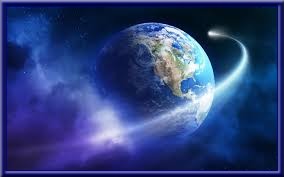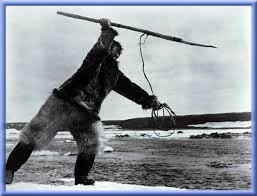The
creative process, the one that brings us all so much pleasure either through
being the creator or the recipient is indeed a strange bird. Somewhere seemingly
out of the ether an idea begins to emerge. It reminds me of when I was a child
and had my first

experience growing crystals. Have you ever grown a
crystal? Ah, a positively magical
affair, especially to a child. You’d get your Dad to go the druggist and buy
whichever chemicals were legal for you to have that had been listed in the crystal-making
book you were reading. You’d make a supersaturated solution of each one of the
chemicals by mixing them in water, suspend a thin twine tied to a stick which
spanned the drinking glasses you’d snuck out of the kitchen…and wait. Within a
day or so, the tiniest of crystals would emerge on the cord and then one would
start to grow. Sometimes they’d get as big as my thumbnail. It was astonishing—these
beautiful crystals from ostensibly out of nowhere – ruby red, sapphire blue and
diamond clear, depending on the solution. There was a critical time period,
however, which you couldn’t predetermine, in which you had to harvest the
crystal or the solution begin to dissolve it and take it back.
I have always
sensed that stories come into existence in just that way. Somewhere in the back
of our minds saturated with intellectual and emotional experiences, a seed
exists around which a story begins to form. What is that seed? That is an
interesting question, for if you find it, you can watch the marvel of the
creative process that unfolds. The novel Accidents
of Birth began in just that manner.
I
was sixteen and about to have some minor surgery. My mother had tucked me in at
the hospital for a three day stay and being an independent child, almost
obnoxiously so, I suggested I was just fine, and she need not come again until
it was time to go home. I had never been in a hospital. I had no idea how much
empty time there was lying there. There was nowhere to go, no TVs and no one to
talk to as hospitals were much emptier those days. By the time late afternoon of
day one rolled around, I was beginning to rue my offhanded dismissal of my
mother, until the sound of soft, rhythmic singing came from down the hall
followed by a gentle rap on my door. I said, “Come in.”
In
response, an aging Black orderly came around the corner. His hair was salt and
pepper gray, his face a deep rich brown and his eyes gentle with concern.
Seeing me all alone, he began to fuss over me as if I were his blood daughter.
I was awed. I had never had anyone treat me with such loving-kindness, let
alone a total stranger.
Come
morning, I realized it wasn’t a chance happening, for when the orderly came
then, she was a forty-something year old Black woman who proceeded to care for
me in the same inclusive manner, making me one of her own. Her kindness knew no
bounds, and I lay there in wonder. She stayed with me until the prepping for
the operation was over, and I was wheeled off.
I
saw those two several more times before I left the hospital. I wanted to say
something to them, but I couldn’t understand all I was feeling at that young
age. I was a kid. What did I know about life and all its glaring
contradictions? But…I never forgot what
it felt like to be loved like that.
Over
the years, that seed drew from all the experiences that made up my life, and
eventually formed a story I would have never imagined writing – me, white, from
a racist family and having always lived above the Mason-Dixon Line. Then, a
protagonist emerged, a woman who was illiterate, quirky, filled with earthy
wisdom and, yes, Black. That was as startling to me as any crystal I’d ever
grown. Mrs. Imogene Ware came into my life, created from that original seed,
and retold in her own way that sixteen year old’s experience:
“We sit quiet again. Then I
git up, walk over to where she set an reach out to her. She come to me like she
a frightened little child, an I hold her tight an stoke her hair, coo to her,
an tell her over an over she be fine. Tell her over an over I love her so, juss
who she be, an I always will. They be no doorways where love live, nothing that
open an shut. They be no time where love live, nothing that begins or ends. But
she don' know that, an my heart weep fo' her.”
It took
me years to grow into a place where I could write this story, have the maturity
and the openness to let it come to and through me. Three days in a hospital
with two incredibly caring souls gave me a gift beyond the obvious, however. It
predisposed me to look at the Black culture throughout my life, and collect
examples of its beauty and goodness. In the process, I met some exquisite human
beings, Black women leaving their mark on the world. Out of that came Accidents of Birth, a story wrapped in
the brutality and racism of the 20th century but told as a profound
love story, for the seed of this novel was love.
Some
final words from Miss Imogene pondering like she so often did as she and her
cart horse, Polly, traveled up and down their farm to market road:
“It clear to me now my mama
didn't leave me with no suggestion. She leave me with her life. She leave me
knowing my work be to love this world too, like she did. An sittin right here
at the edge of this road ponderin' on what lies ahead a me, it feel more curse
than grace, but that juss 'cause I be scared. An then as I look at the people
round me, I see they be livin' out what they be left by they mama or they papa.
An it don' seem to matter whether you respected them or not, just being round
'em for so long, who they be an what they believe seep into ya. An it don' look
like no easy thing to be achangin' that. But by God above, there muss be some
way to use what we learn to make our chiluns' lives kinder and happier, not
juss repeating our woes. Then I chuckle quietly as I think of the years of
slavery, an racism, an poverty, an disease, an it occur to me history don' seem
to favor that notion. Well, I do, indeed I do.”






















